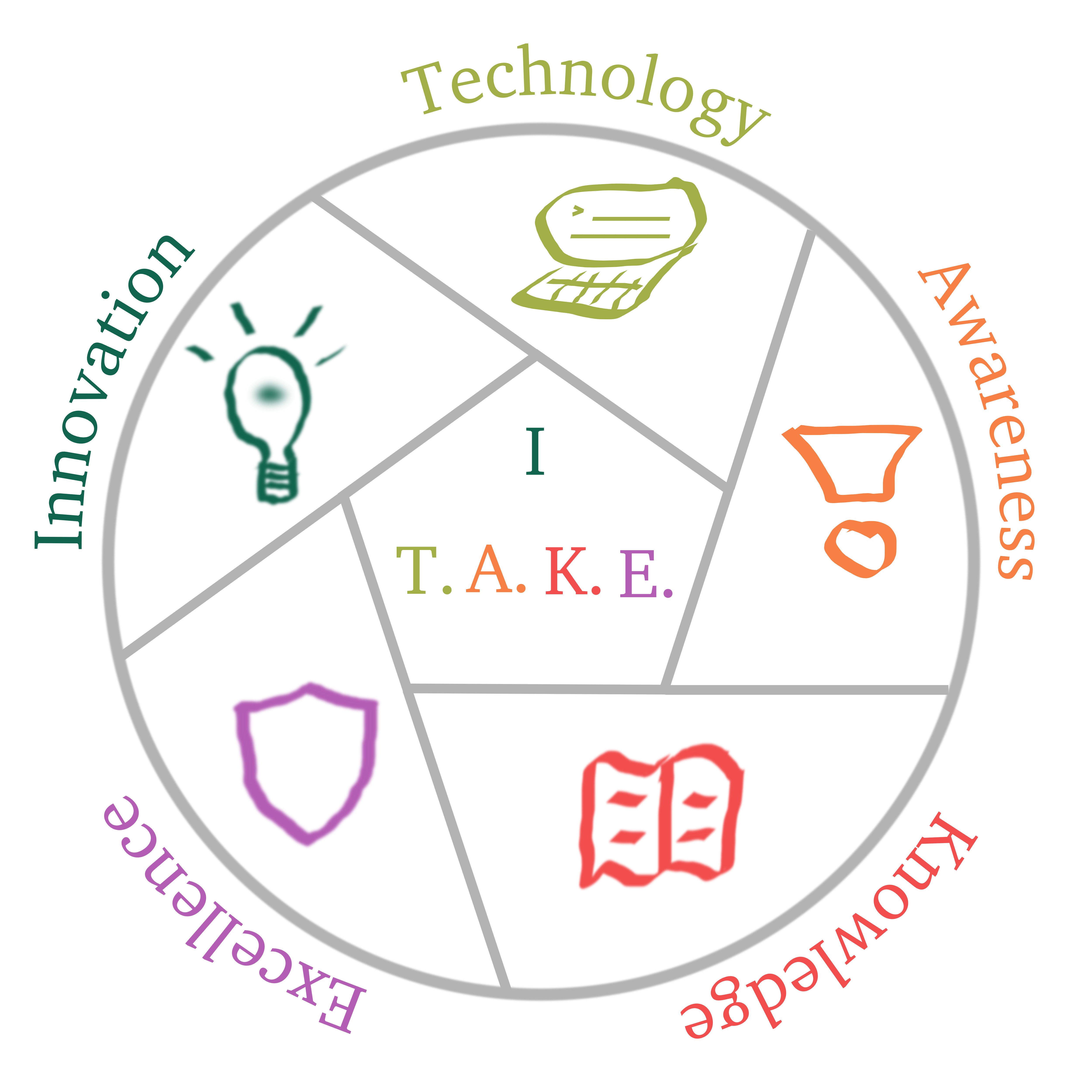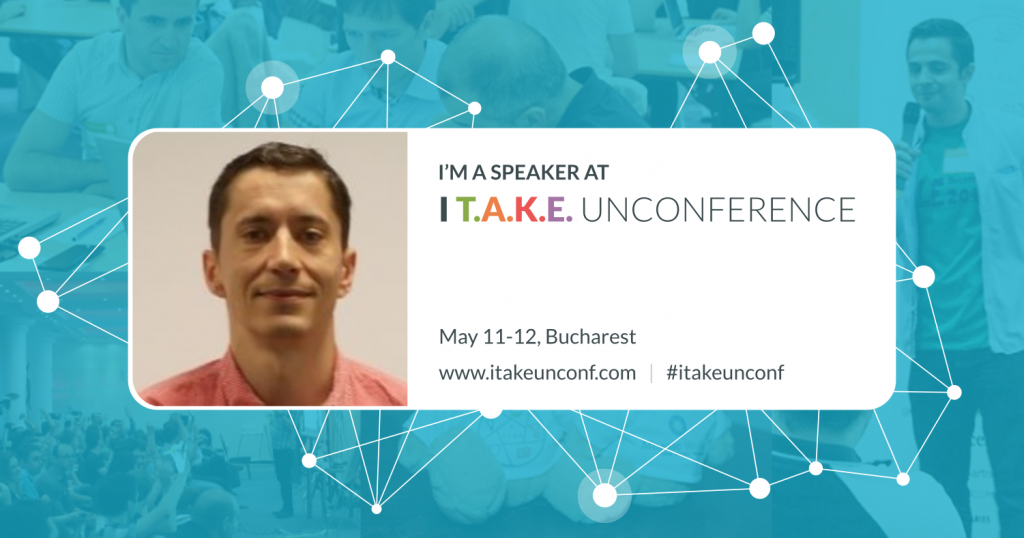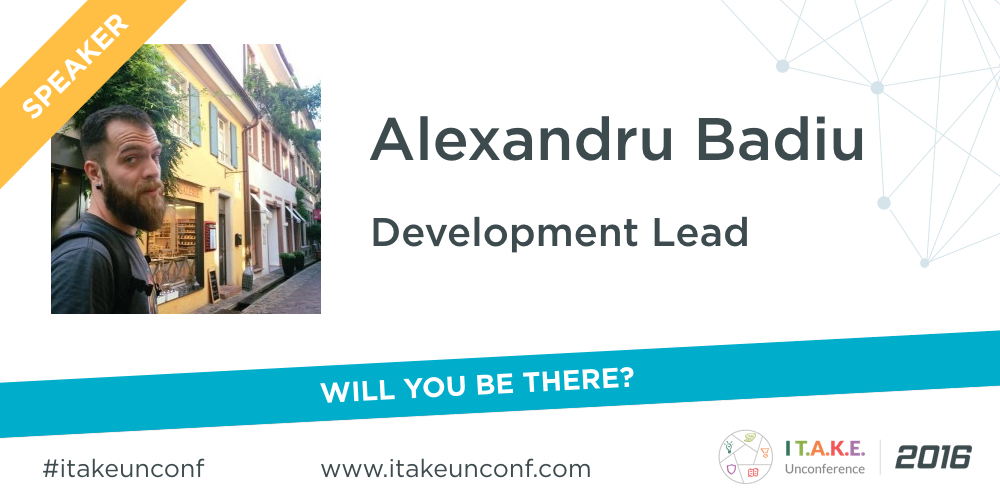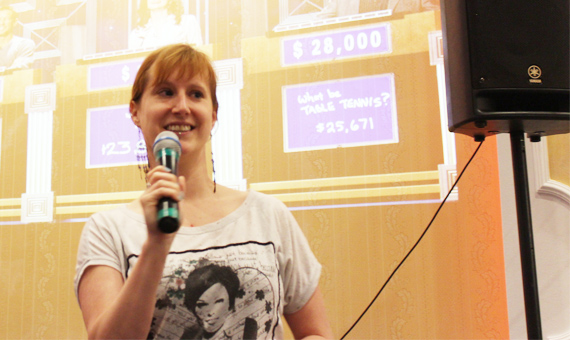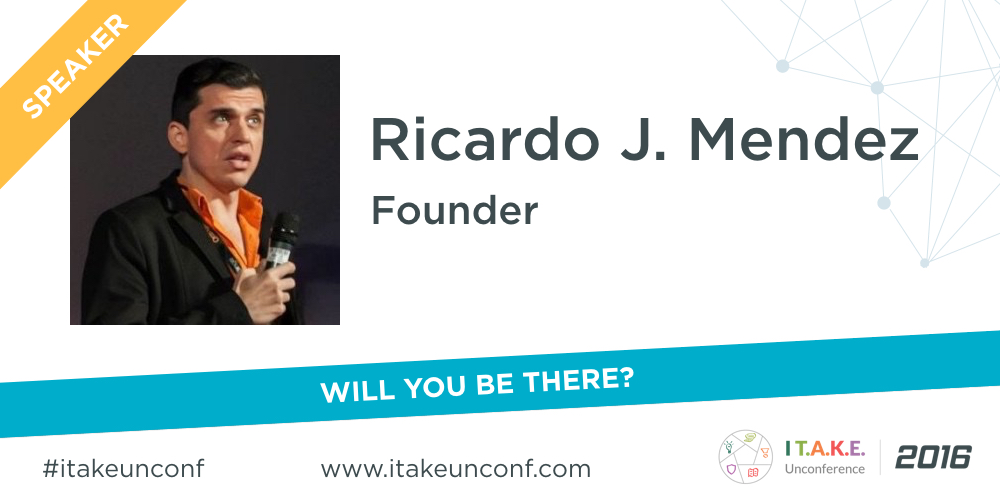
Enjoy the following series of interviews with the speakers, top-notch software crafters from across Europe, joining I T.A.K.E Unconference, Bucharest, 19-20 May. Discover the lessons learned and what drives them to challenge the known path in their field.
Ricardo J. Mendez, founder at Numergent, is a software developer with 20 years of practice. He will share in his talk at I T.A.K.E Unconference 2016 more about immutable data.
#1. SHARE TOP 5 THINGS YOU DID THAT HELPED YOU GROW & BECOME THE PROFESSIONAL YOU ARE TODAY
Starting my own business, leaving the comfort of a company where you get a certain sense of security by deriving a regular salary, and having to deal with the hidden iceberg of new skills I had to learn but hadn’t realized I didn’t even know about.
Joining my first start up, which wasn’t the same as a usual job, nor with the degree of control of just running my own business, was a great learning experience on how to deal with uncertainty while still aiming to provide a measure of direction.
Realizing that, as a developer, your job is not to deliver code. Your job is to keep the user happy, and delivering code is only a part of that. It requires a mental shift from the technology-focused mentality one tends to have as an engineer.
Working with distributed teams, and learning to adapt to the different work and communication styles of people from different countries, has made a huge difference in adaptability, and has taught me to not assume the message is always getting across.
Going through several technology trends and epochs, seeing language and platform flame wars rage and abate, trying a bit of everything, helps come to grips with the idea that a language or a platform is just a tool, and it’s what you do with it that matters.
#2. What challenges will the participants find solutions to during your session at I T.A.K.E Unconference 2016?
The idea that being unable to modify your data can bring more flexibility is unintuitive.
However, the bigger our codebases grow, the harder it becomes to find out if a refactoring process, or even a seemingly small change, will have a negative impact. Test suites can reduce this uncertainty, but normally only inform us of a problem *after* we’ve made a change. There’s usually no way to know, in advance, how time consuming the side effects of a modification will be.
A shift in mentality towards data immutability, whatever the language we are using, will help structure the code and functionality in a way that makes it easier to grow and change down the road.
#3. What else would you like to share with participants ?
I assemble and lead project-specific teams to tackle challenges involving interaction design, data and open source. I’ve been working on software for over 20 years, across multiple industries – from desktop tools, to banking and financial institutions, to healthcare, to gaming.
I usually work with distributed teams, as I’d rather take the expertise where I find it than expect it to be around the corner, and it leads to interesting, varied teams with different perspectives.
A voracious reader, of both technical and non-technical books, it would be strange to find me without one or two tomes in progress. This extends to platforms and languages – I very much enjoy kicking the tires on both, always looking for something new to learn.
Want to join Ricardo and many more software crafters from around Europe?Join I T.A.K.E Unconference 2016!
